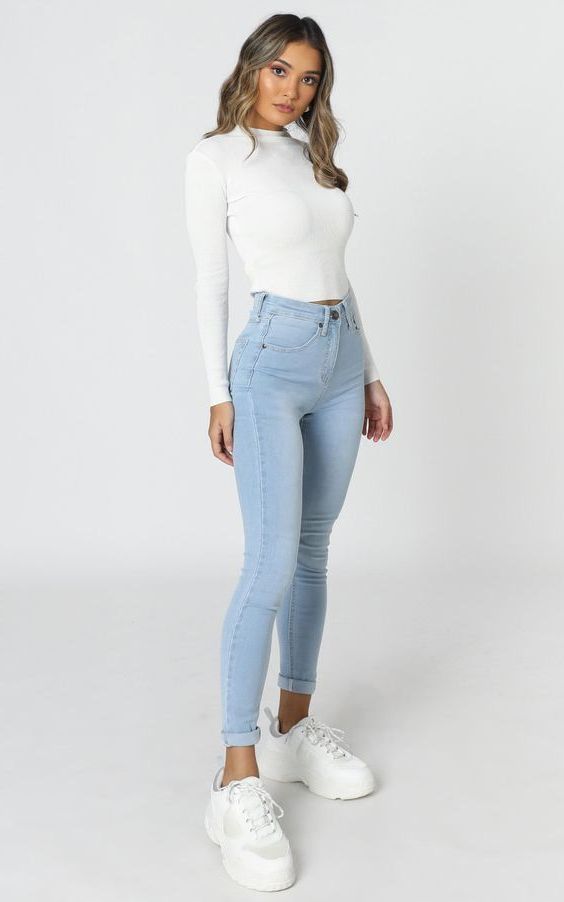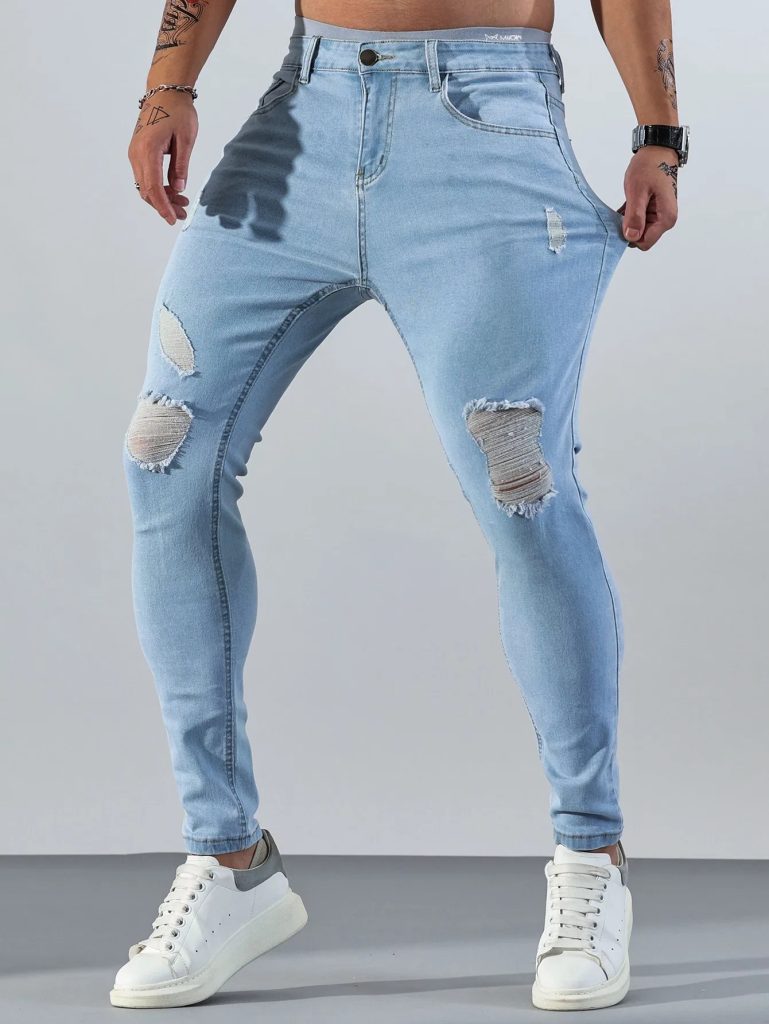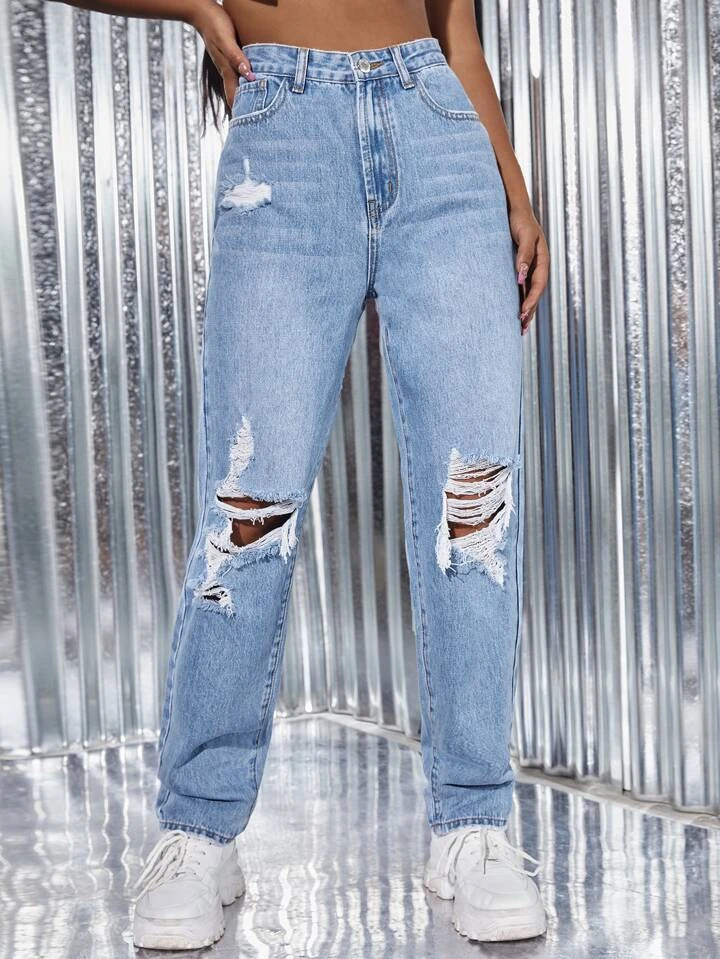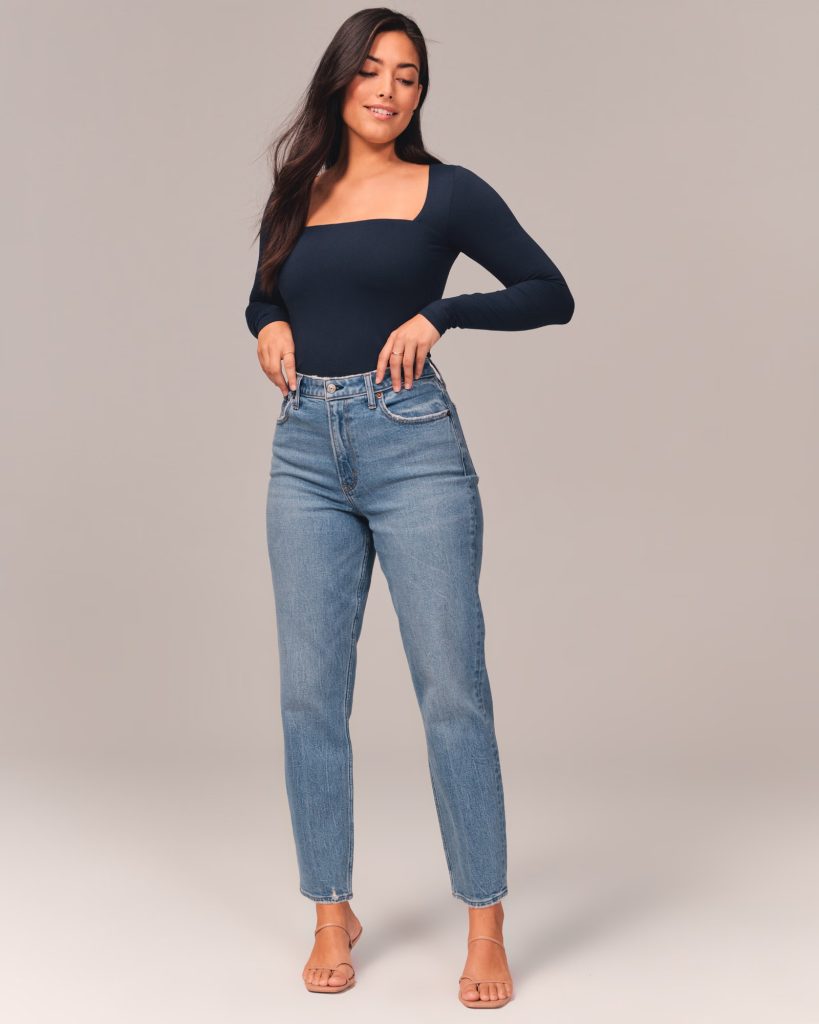How should jeans fit?Finding the perfect pair of jeans that fit you like a glove can be a challenging task, but understanding how jeans should fit can make the process easier. The fit of your jeans plays a crucial role in determining both your comfort and style. Here is a detailed guide on how jeans should fit to ensure you look and feel your best:

1. Waistband Fit:
The waistband of your jeans should sit comfortably at your natural waist or slightly below it. It should be snug enough to stay in place without feeling too tight or digging into your skin. When trying on jeans, make sure you can button them easily without them feeling constricting. Avoid jeans that gap at the back when you sit down, as this indicates they are too loose around the waist.
2. Hip and Seat Fit:
The hip and seat area of your jeans should contour to your body shape without feeling too tight or overly loose. Look for jeans that provide enough room in the hip and seat area to allow for natural movement without feeling restricted. The fabric should lie smoothly against your hips and not create any unflattering bulges or wrinkles.
3. Thigh Fit:
The thigh area of your jeans should offer enough room for comfortable movement without excess fabric bunching up or sagging. Your thighs should feel supported but not squeezed in tightly. Opt for jeans with a slim or straight leg silhouette if you prefer a tailored look or choose relaxed-fit jeans for a more casual and roomy feel around the thighs.
4. Inseam Length:
The inseam length of your jeans determines where the hemline falls on your legs. The ideal inseam length will depend on your height and personal preference. Classic inseam lengths include regular (about 32 inches), short (about 30 inches), and long (about 34 inches). Ensure that the jeans’ inseam length allows for a slight break or stacks at the hem without dragging on the ground.

5. Leg Opening:
The leg opening of your jeans should balance your overall silhouette and footwear choice. Opt for a leg opening that complements your body shape and preferred style. Skinny jeans typically have a narrow leg opening, while bootcut or flared jeans offer a wider opening. The leg opening should be wide enough to accommodate your shoes but not overly loose or baggy.
6. Rise Fit:
The rise of your jeans refers to the distance between the crotch seam and the waistband. Different rise options include low-rise, mid-rise, high-rise, and ultra-high-rise. Choose a rise that feels comfortable and flatters your body shape. High-rise jeans are known for their waist-cinching effect, while low-rise jeans sit lower on the hips for a more relaxed look.
7. Fabric Stretch and Recovery:
Consider the fabric composition of your jeans, especially if they contain stretch materials like elastane or spandex. Stretch denim offers flexibility and ease of movement, but it’s essential to ensure that the fabric maintains its shape and doesn’t stretch out excessively with wear. Look for jeans with good stretch and recovery properties for a comfortable yet form-fitting silhouette.
8. Overall Comfort:
Ultimately, the fit of your jeans should prioritize comfort above all else. You should be able to move, sit, and walk comfortably in your jeans without feeling restricted. Pay attention to how the jeans feel on your body and make adjustments as needed to achieve the perfect balance between style and comfort.

9. Tailoring and Alterations:
If you find a pair of jeans that you love but need minor adjustments in fit, consider getting them tailored. Common alterations include hemming the length, taking in the waist, or tapering the legs for a custom fit. A skilled tailor can help personalize your jeans to suit your body shape and preferences perfectly.
How to choose jeans
1. Determine Your Body Type:
Understanding your body type is the first step in selecting jeans that flatter your figure. Common body types include hourglass, pear-shaped, apple-shaped, athletic, and petite. Identify your body type to focus on styles and fits that accentuate your best features and provide a balanced silhouette.
2. Consider Your Style Preferences:
Consider your personal style and the occasion for which you’ll be wearing the jeans. Do you prefer a classic, casual, or trendy look? Are you looking for jeans for work, a night out, or everyday wear? Knowing your style preferences will help you narrow down the options and choose jeans that align with your fashion sense.

3. Understand Different Jean Fits:
There are various jean fits available, including skinny, straight, bootcut, flare, boyfriend, and wide-leg. Each fit offers a different silhouette and style. Try different fits to determine which ones suit your body type and style preferences. Remember to keep comfort and versatility in mind when selecting a fit.
4. Pay Attention to Rise:
The rise of jeans refers to the distance between the crotch and waistband. Common rise options include low-rise, mid-rise, high-rise, and ultra-high-rise. The rise affects both the style and comfort of the jeans. Consider your body shape and personal preference when choosing the rise that works best for you.
5. Find the Right Waist Size:
Ensure that the waist size of the jeans fits comfortably around your waist without being too tight or too loose. Use a measuring tape to determine your waist size accurately. Keep in mind that different brands may have slight variations in sizing, so it’s essential to try on multiple sizes and styles to find the best fit.
6. Check the Inseam Length:
The inseam length determines where the jeans’ hemline falls on your legs. The ideal inseam length will depend on your height and style preferences. Consider whether you want ankle-length, regular, or longer jeans. Hemming is always an option if you can’t find the perfect inseam length off the rack.

Conclusion:
Finding jeans that fit well is a key aspect of building a versatile and stylish wardrobe. By understanding how jeans should fit in terms of waistband, hip and seat, thigh, inseam length, leg opening, rise, fabric stretch, and overall comfort, you can make informed decisions when shopping for denim. Remember that the perfect pair of jeans should not only look great but also make you feel confident and comfortable in any situation. Experiment with different styles, silhouettes, and fits to discover the jeans that flatter your figure and suit your individual style preferences.